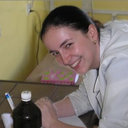[Acute poisoning with weight-loss dietary supplement falsely suggesting the use of amphetamine].
Kulcsszavak
Absztrakt
OBJECTIVE
We report a case of abuse of weight-loss dietary supplement in 27-year-old man, with characteristic for amphetamine sympathomimetic symptoms and positive analysis of this drug in the urine by immunoassay method (FPIA; Axsym, Abbott). However positive result was not confirmed by liquid chromatography coupled with tandem mass spectrometry (LC-MS-MS).
METHODS
The patient ate nine tablets of the Thermal Pro with declared composition of caffeine (250 mg), bitter orange (200 mg), beta-phenylethylamine (100 mg), willow bark (75 mg), Cayenne pepper (40 mg), 1,3-dimethyloamyloamine (DMAA, 35 mg), gooseberry extract (20 mg), bergamot orange (20 mg), black pepper (5 mg), after two-month period of regular consumption at dose of 2-3 capsules per day. After 4 hours, during admission to the Department of Toxicology, patient manifested typical sympathomimetic symptoms: anxiety, agitation, pale skin, sweats, tachycardia 120/min, mydriasis. Following the outcome of detecting amphetamine/methamphetamine in the patient's urine at 2377 ng/mL concentration using FPIA method, drug intoxication was suspected. It was considered that the ingestion was intentional or unconscious of adulterated dietary supplement. In view of the strong opposition of the patient, who denied any use of psychoactive substances, it was decided to re-examine collected speciments. The liquid chromatography coupled to tandem mass spectrometry (LC-MS-MS) method did not confirm the presence of amphetamine in the patient's blood and urine. Based on the composition of dietary supplements for substances which could be responsible for the positive amphetamine result in urine by FPIA method and available literature data, it was concluded that the substances that may react in the immunoassay could be dimethylamyloamine (DMAA, geranamine) or bitter orange components.
CONCLUSIONS
False positive urinalysis towards amphetamine/methamphetamine by immunoassay and presence of sympathomimetic effects may contribute to a false diagnosis of this drug poisoning. Definitive confirmation of such intoxication requires the use of the reference methods.



